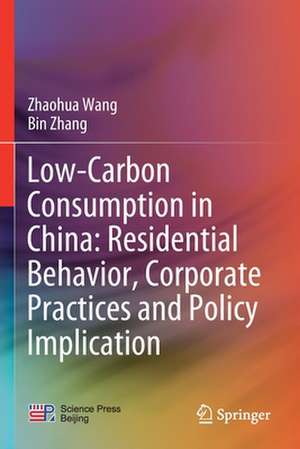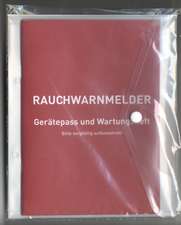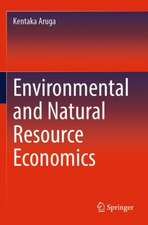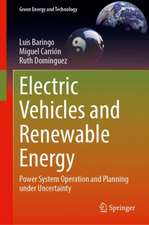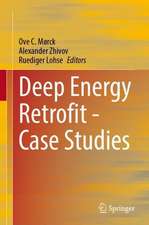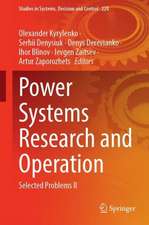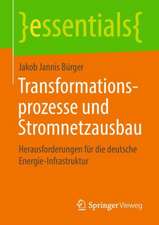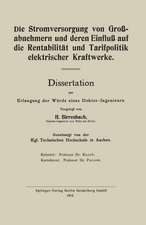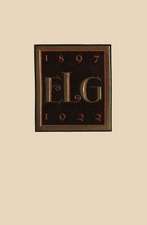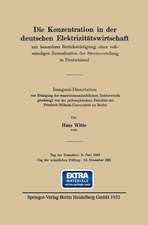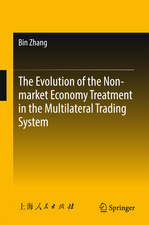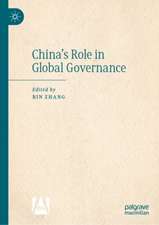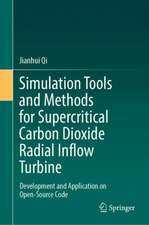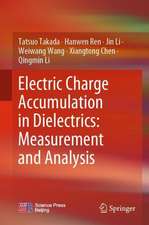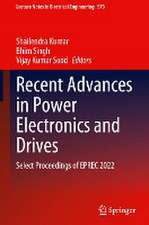Low-Carbon Consumption in China: Residential Behavior, Corporate Practices and Policy Implication
Autor Zhaohua Wang, Bin Zhangen Limba Engleză Paperback – 13 iul 2021
| Toate formatele și edițiile | Preț | Express |
|---|---|---|
| Paperback (1) | 946.72 lei 6-8 săpt. | |
| Springer Nature Singapore – 13 iul 2021 | 946.72 lei 6-8 săpt. | |
| Hardback (1) | 952.89 lei 6-8 săpt. | |
| Springer Nature Singapore – 13 iul 2020 | 952.89 lei 6-8 săpt. |
Preț: 946.72 lei
Preț vechi: 1154.54 lei
-18% Nou
Puncte Express: 1420
Preț estimativ în valută:
181.18€ • 196.73$ • 152.19£
181.18€ • 196.73$ • 152.19£
Carte tipărită la comandă
Livrare economică 22 aprilie-06 mai
Preluare comenzi: 021 569.72.76
Specificații
ISBN-13: 9789811527944
ISBN-10: 9811527946
Ilustrații: XIV, 327 p. 51 illus., 1 illus. in color.
Dimensiuni: 155 x 235 mm
Greutate: 0.48 kg
Ediția:1st ed. 2020
Editura: Springer Nature Singapore
Colecția Springer
Locul publicării:Singapore, Singapore
ISBN-10: 9811527946
Ilustrații: XIV, 327 p. 51 illus., 1 illus. in color.
Dimensiuni: 155 x 235 mm
Greutate: 0.48 kg
Ediția:1st ed. 2020
Editura: Springer Nature Singapore
Colecția Springer
Locul publicării:Singapore, Singapore
Cuprins
Carbon dioxide emissions from residential consumption in China.- Features and determinants of electricity-saving behavior.- Empirical analysis of low carbon transportation in China.- Residential willingness in purchasing low carbon products.- E-waste recycling behavior in China.- Relationship between industrial growth and carbon emissions.- Motivation of energy intensive industries on carbon emission reduction: learning from iron & steel industry.- Energy efficiency and carbon emission abatement technology.- Inter-firm collaboration on carbon emission abatement.- Low carbon policies in China.
Notă biografică
Zhaohua Wang is a Professor and doctoral supervisor at the School of Management & Economics, Beijing Institute of Technology, China. He is also the director of the Chinese Society for Sustainable Development (CSSD) and a senior member of the Chinese Society of Technology Economics (CSTE). He received his doctoral degree from Dalian University of Technology in 2003, and completed his postdoctoral research at Tsinghua University from 2003 to 2005. Prof. Wang has extensive research experience in the field of low carbon consumption from both household and corporate perspectives. He has published more than 200 academic papers in international journals, such as Nature (Comment), Energy Economics, and Energy Policy, and his research findings have provided policy support for Chinese government institutions, such as the State Council and National Energy Bureau. He has also received numerous awards and titles, such as Cheung Kong Scholar Chair Professor, and National Outstanding Young Investigator Award in recognition of his outstanding research.
Bin Zhang is an Assistant Professor at the School of Management & Economics, Beijing Institute of Technology, China. He received his doctoral degree from Beijing Institute of Technology in 2014, and completed his postdoctoral research at Hong Kong Polytech University from 2015 to 2017. Dr. Zhang is an important member in Prof. Wang’s research group, and they have collaboratively published more than 30 academic papers on low carbon consumption in China.
Bin Zhang is an Assistant Professor at the School of Management & Economics, Beijing Institute of Technology, China. He received his doctoral degree from Beijing Institute of Technology in 2014, and completed his postdoctoral research at Hong Kong Polytech University from 2015 to 2017. Dr. Zhang is an important member in Prof. Wang’s research group, and they have collaboratively published more than 30 academic papers on low carbon consumption in China.
Textul de pe ultima copertă
This book explores China’s low-carbon consumption in the context of residential behaviour, corporate practices and policy Implication. It first calculates the carbon and ecological footprints of residential consumption, including both direct and indirect emissions, before discussing Chinese residential behavioural aspects and determinants of electricity saving, low-carbon transportation, low-carbon product purchasing, and e-waste recycling. The authors then investigate the relationship between industrial growth and carbon emissions, using the example of the iron and steel industry to examine the motivation for energy intensive industries to reduce carbon emissions. They also consider energy efficiency and inter-company collaboration on carbon emission reduction. Lastly, the book describes the major low-carbon policies in China and their impact, economic cost and public acceptance.
Caracteristici
Describes various theoretical methods to examine low carbon consumption in China
Discusses the rebound effect of electricity consumption and transportation
Uses data envelope analysis to calculate energy efficiency
Explores inter-firm collaboration on carbon emission reduction
Presents the major low carbon policies in China, and discusses the impact and economic cost of these policies
Discusses the rebound effect of electricity consumption and transportation
Uses data envelope analysis to calculate energy efficiency
Explores inter-firm collaboration on carbon emission reduction
Presents the major low carbon policies in China, and discusses the impact and economic cost of these policies
